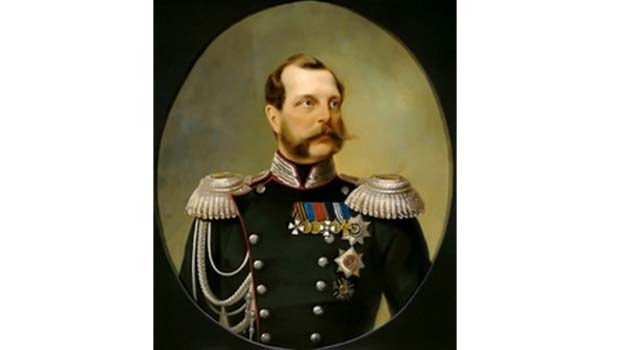This Day In History
Alexander II becomes Czar of Russia

When his father, Nicholas I, died of pneumonia, Alexander Nikolayevich Romanov succeeded to the throne of emperor of Russia, becoming Czar Alexander II on March 2, 1855. While his 36-year rule was marked by substantial reforms, it was also dogged by unrest and several assassination attempts.
Two strong influences stamped Alexander’s character. One was the autocratic personality and rule of his father; the other was his education, tinged with the principles of liberalism and romanticism. He ascended to the throne with Russia in a crisis, fighting the Crimean War against the Ottoman Empire, which had the support of Britain and France. The fighting continued for nearly a year, but Alexander had to sign a treaty making concession.
Russia’s defeat convinced him that he had to modernize the nation and spurred a program of industrialization and liberal reform. New railway lines were built, universities and courts were reformed, and there was even some steps made to reduce censorship. The signal achievement of Alexander’s reign was the emancipation of the serfs, as tens of millions of peasants were released from centuries-old feudal bonds and even given land allotments. The reform failed to produce a viable class of small farmers, however.
Another liberalization, with Russia lightening its grip on Poland, led to nationalist revolts there and the growth of radicalism both there and in Russia. Alexander responded by strengthening the secret police, which produced more unrest, further suppression, and several assassination attempts against the emperor. In 1881, he leaned once more toward liberalization, signing a decree on March 1 that would create a new constitution. That very day, he was wounded fatally in a terrorist attack, dying one day short of the anniversary of the day he took the throne. —History


